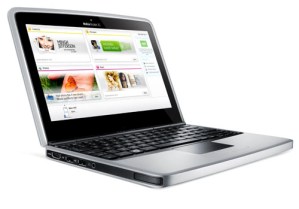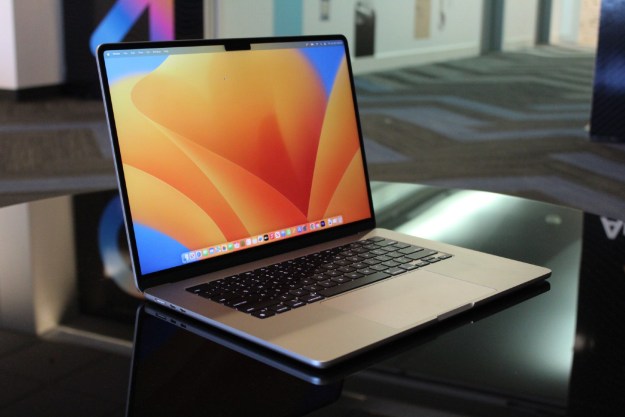
The patent infringement battle between Finland’s Nokia and Apple seems to be taking a dramatic turn, with Nokia now claiming to the U.S. International Trade Commission that “virtually all” Apple products—including iPhones, iPods, and Macintosh computers—violate Nokia patents.
The move may just be brinksmanship, and is the latest installment in a flurry of action between the two companies: first Nokia sued Apple, claiming the iPhone infringes on ten Nokia patents related to wireless communications technologies. A bit of a month later, Apple sued Nokia claiming several Nokia products infringe on some 13 Apple patents, many of which relate to Apple’s now-iconic iPhone.
Nokia’s new filing claims that “virtually all” of Apple’s iPhones, iPod line, and computer systems violate seven Nokia patents related to user interface, cameras, antennas, and power management technologies. If Apple were to be found guilty of infringement, it could be forced to pay Nokia hundreds of millions of dollars in royalties, plus penalties. Of course, the same goes for Nokia: the Finnish company—which is still the world’s largest maker of mobile handsets—could be forced to pay Apple for infringement.
Nokia says it expects the ITC will decide whether or not to pursue a case in about 30 days. Nokia is seeking damages and a ban on the sale of infringing Apple products.
Major patent disputes like these often take years to resolve, and are often settled out of court. Industry watchers see Nokia’s latest filing as a way to apply additional pressure on Apple in order to move the company towards a settlement or cross-licensing agreement.
For the record, here’s Nokia’s full claim:
Espoo, Finland – Nokia announced it has today filed a complaint with the United States International Trade Commission (ITC) alleging that Apple infringes Nokia patents in virtually all of its mobile phones, portable music players, and computers.
The seven Nokia patents in this complaint relate to Nokia’s pioneering innovations that are now being used by Apple to create key features in its products in the area of user interface, as well as camera, antenna and power management technologies. These patented technologies are important to Nokia’s success as they allow better user experience, lower manufacturing costs, smaller size and longer battery life for Nokia products.
“Nokia has been the leading developer of many key technologies in small electronic devices” said Paul Melin, General Manager, Patent Licensing at Nokia. “This action is about protecting the results of such pioneering development. While our litigation in Delaware is about Apple’s attempt to free-ride on the back of Nokia investment in wireless standards, the ITC case filed today is about Apple’s practice of building its business on Nokia’s proprietary innovation.”
Editors' Recommendations
- I tried the Apple Vision Pro. Here’s why it won’t replace my iPhone
- 6 upcoming products that will make 2024 a huge year for Apple
- Shopping at Apple this holiday season? You should know this
- Everything Apple didn’t announce at its ‘Scary Fast’ launch event
- The M3 iMac is here, but it’s missing its most requested change


